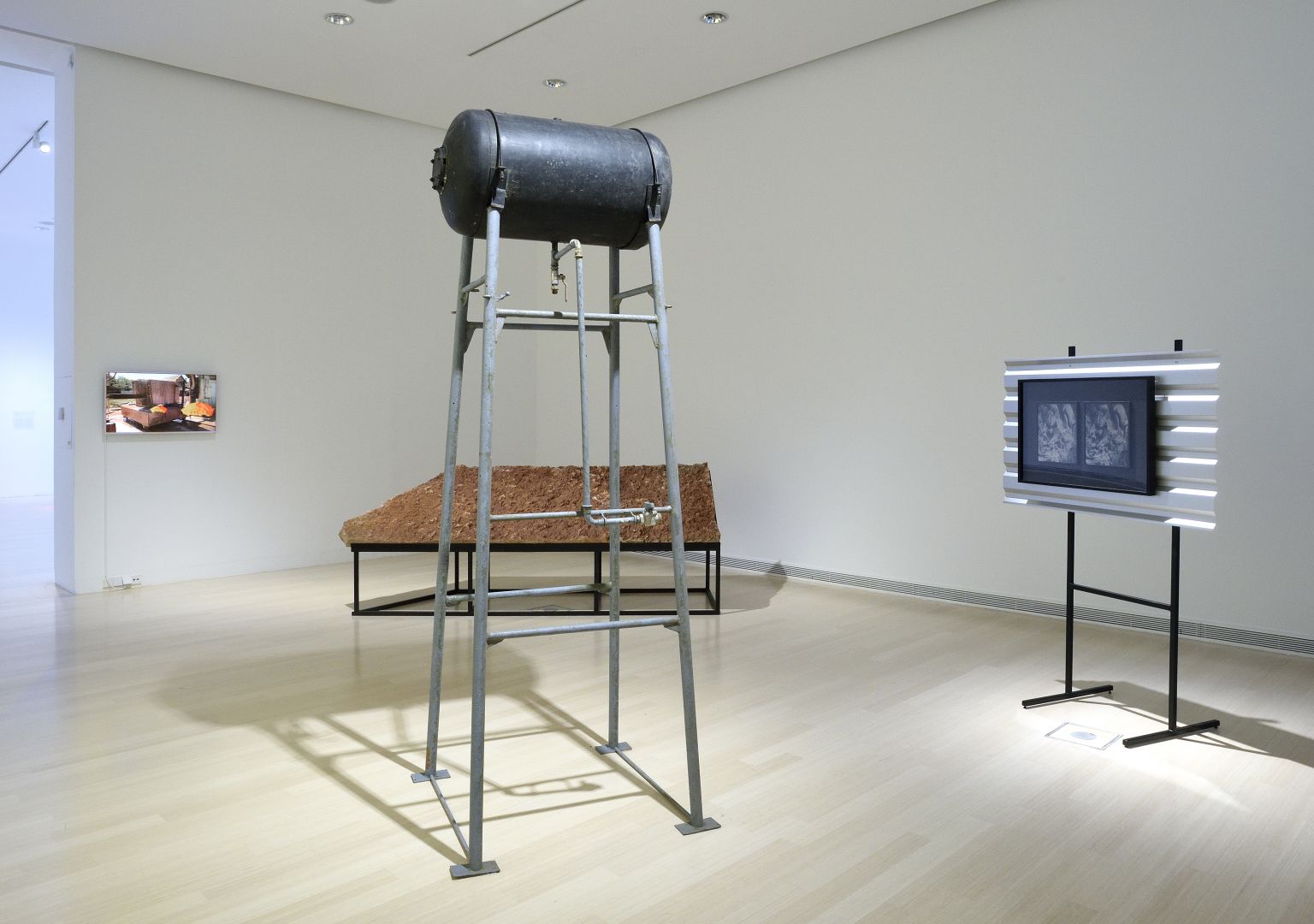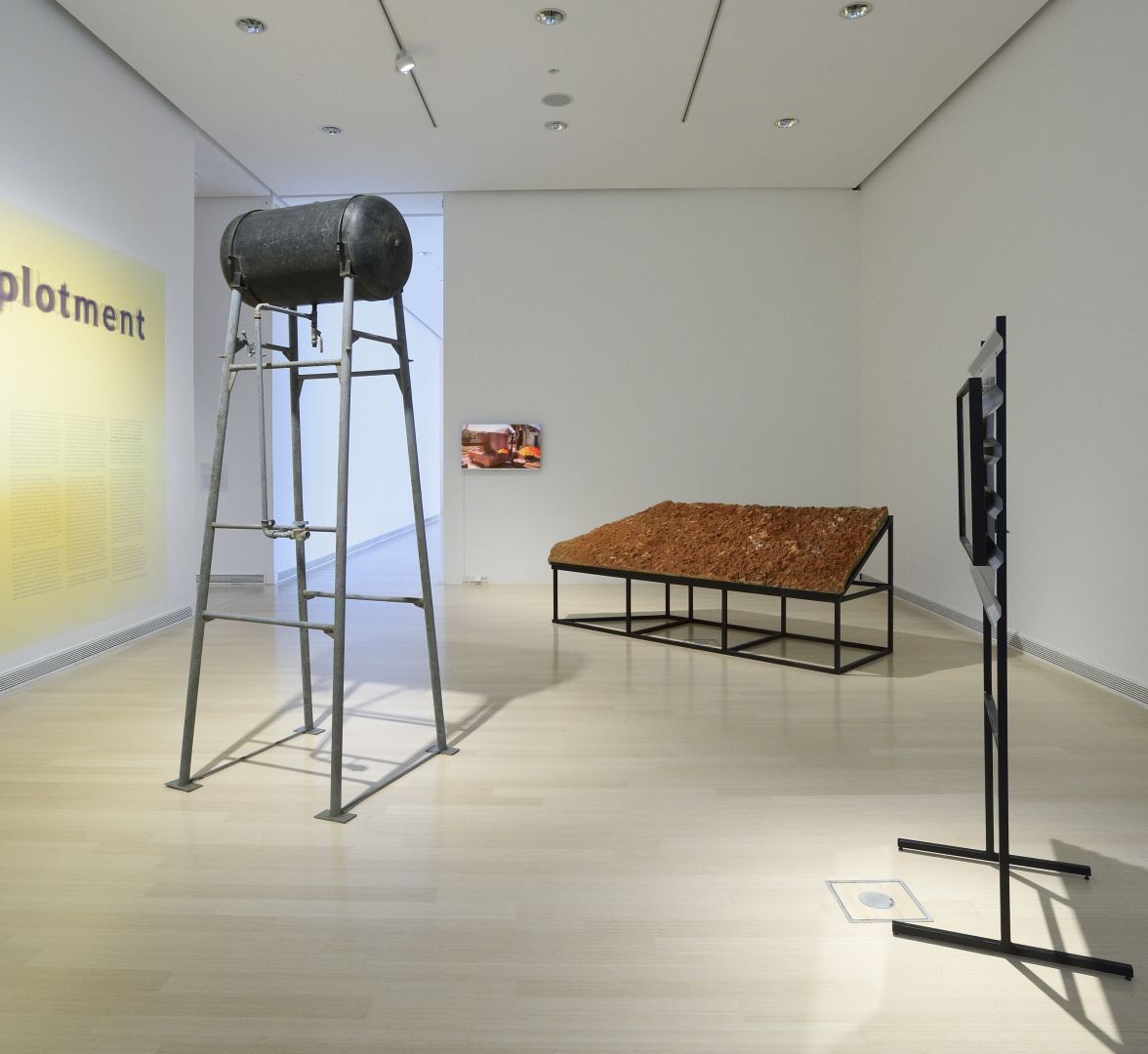ALBERT Ádám
The Metamorphosis of a Story: Water and Stone
ALBERT Ádám
The Metamorphosis of a Story: Water and Stone, 2022
Tardos red limestone, iron, galvanised metal sheet, ambrotype, video; dimensions variable
Courtesy of the artist
Photo: József ROSTA © Ludwig Museum – Museum of Contemporary Art
Whether personal, communal, or societal, the scope and the scale of trauma is definitely unquantifiable. Both the experience itself and the process of handling it, unfold in time in a performative manner, with disruptions, discontinuity, and breakdowns. In many instances, the given trauma fossilizes at a certain stage and cannot be brought forward or – similarly to lost and buried archival materials – retrieved. This fossilization results in a sense of not belonging: the individual trauma-source is not able to place the components of the trauma into one narrative framework. As it is the case with sedimentary stones (that people often misidentify as marble), there is no metamorphosis that would result in the stone’s transformation to marble, the constituting elements (e.g. water lilies, sponges, unicellulars) remain discrete and recognizable. The approximately 200-million-year-old stone functions as a small cemetery of these once living organisms. The microscopic character of human life is diametrically opposed to the ungraspable life span of the limestone. Within the installation, the piece of limestone can be associated with a lack of water, while the semi-abstract object, takes the shape and size of a DIY water vessel, heated by the sun. Similarly to the stone, this object is paradoxically both abstract and concrete, its representational qualities rely precisely on its non-representational aspects. This ambiguity allows the viewers to take the installation as a catalyst to the archaeological process vis-à-vis their own traumas. The splitting of the stone boards in the video is not only an allegory of the release of bad conscience but alludes to the mythic three wishes one might make at a jinn.
TIMÁR Katalin

